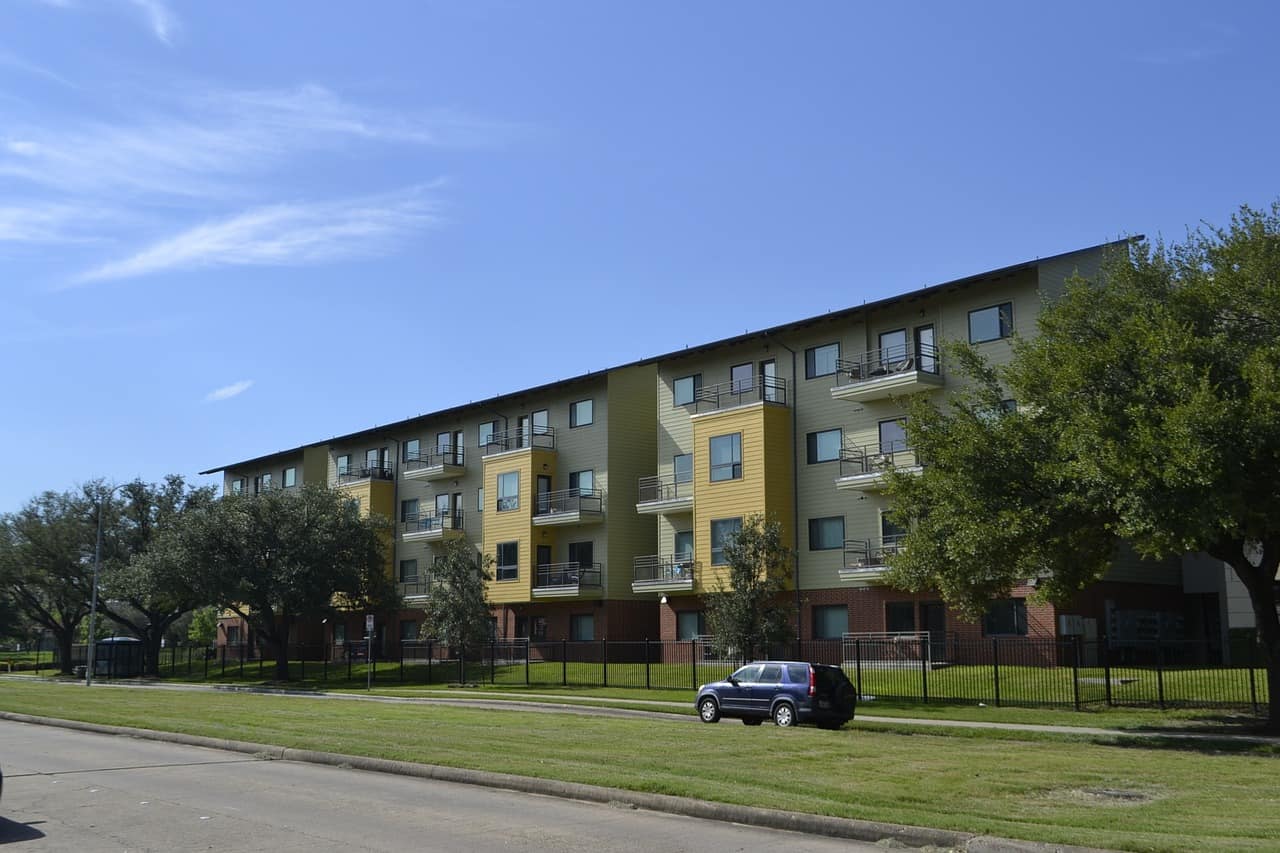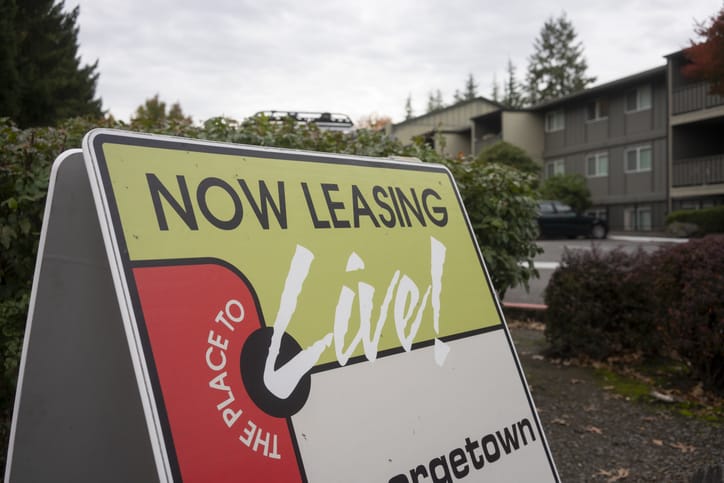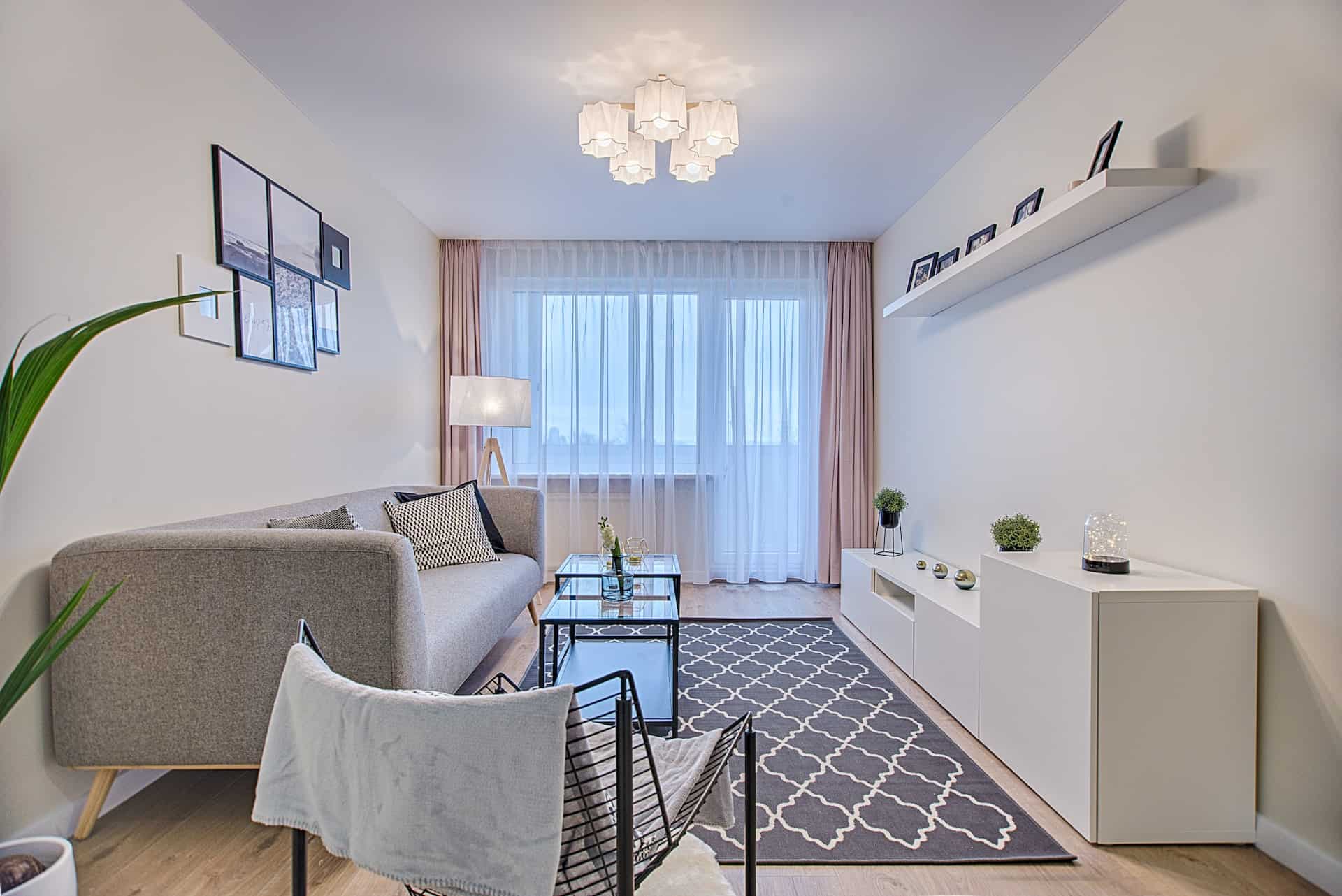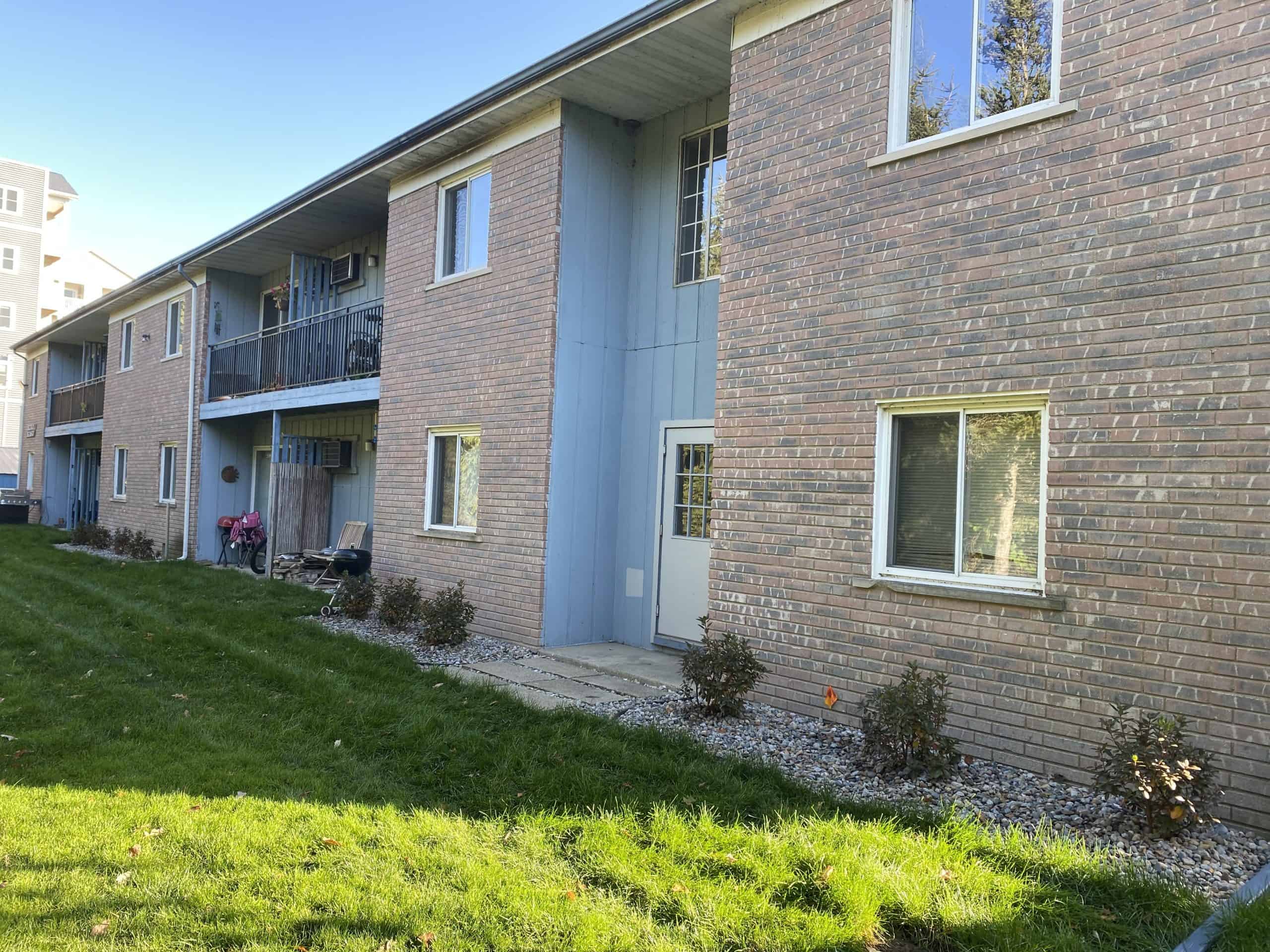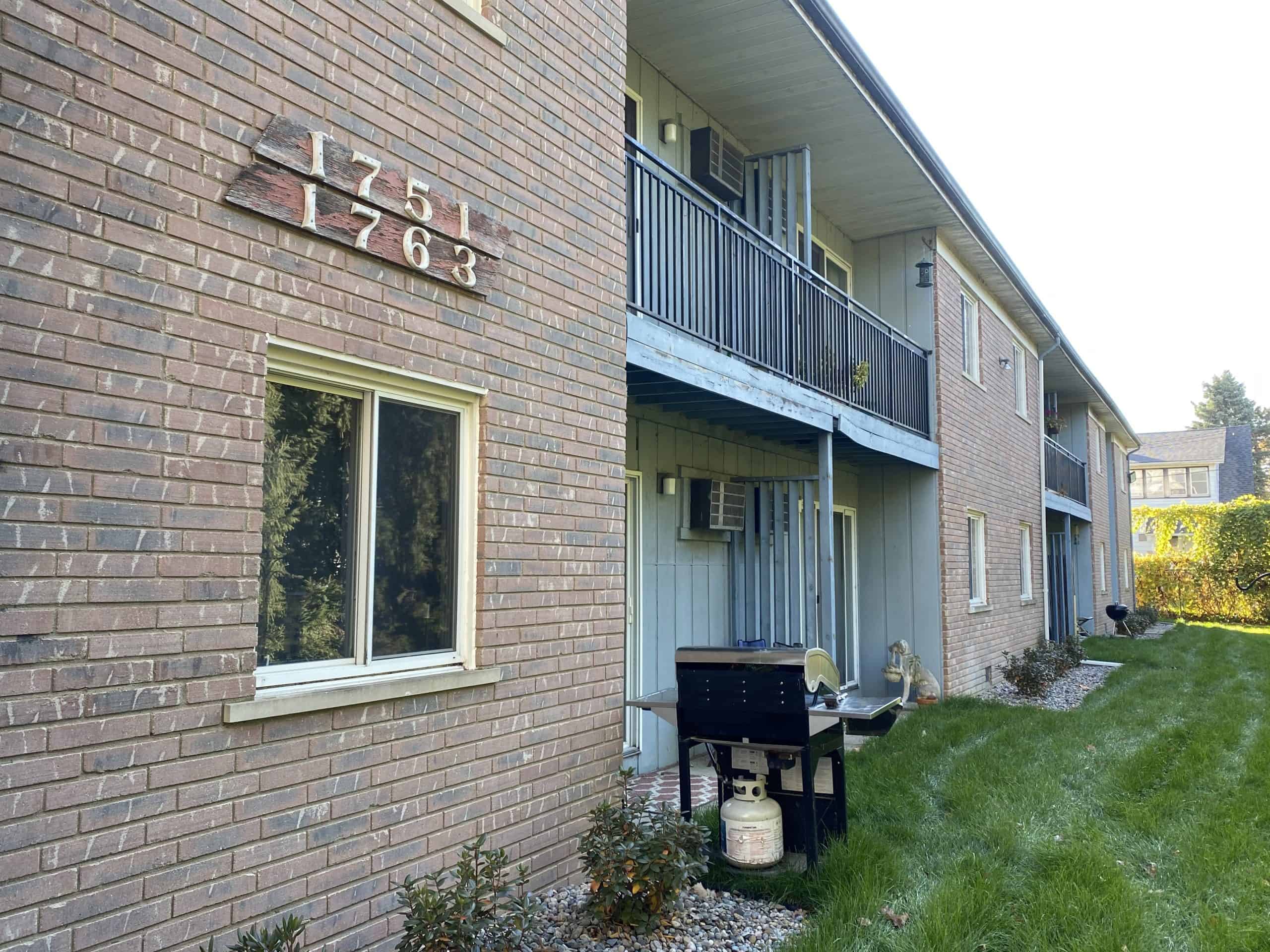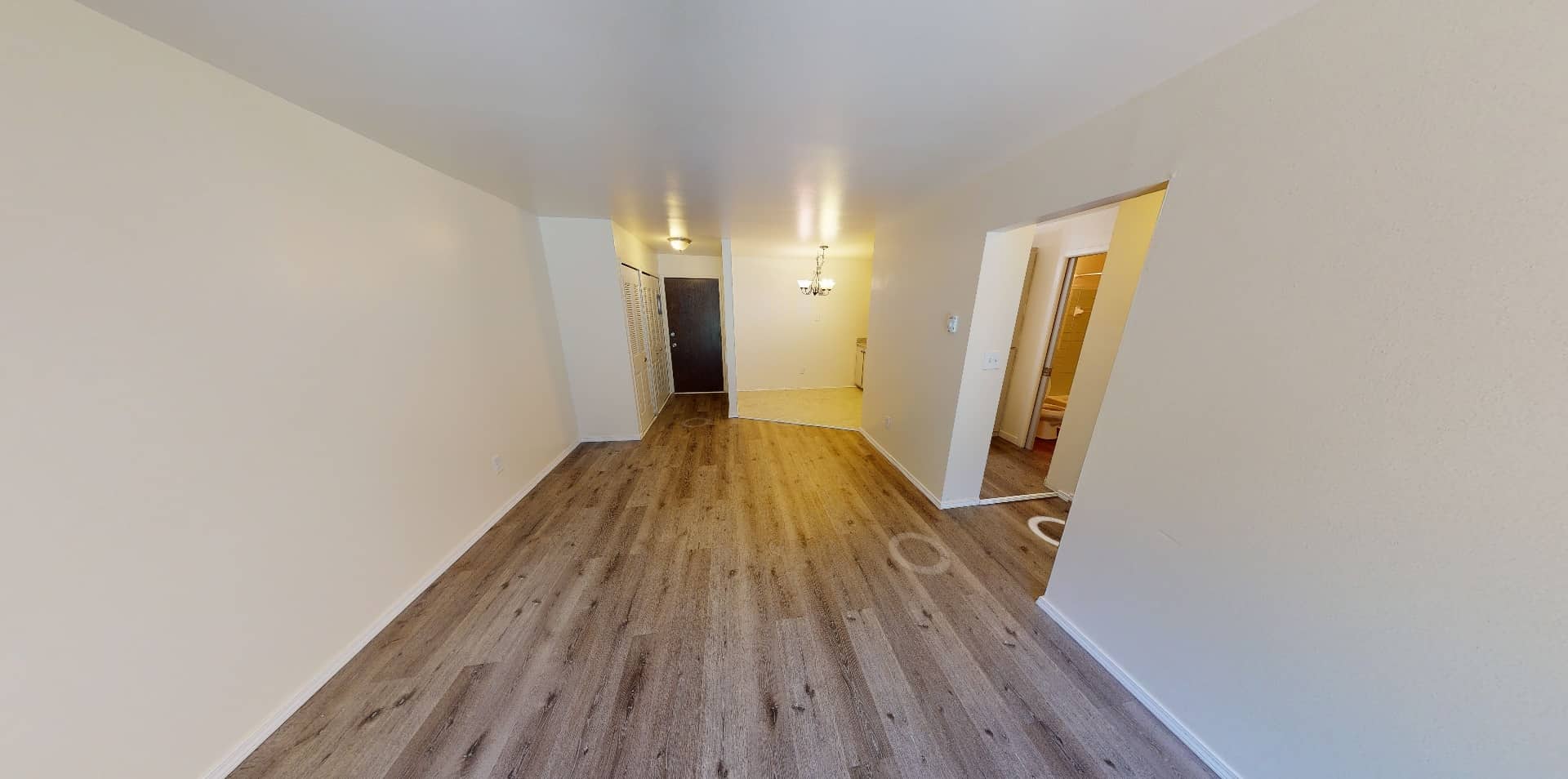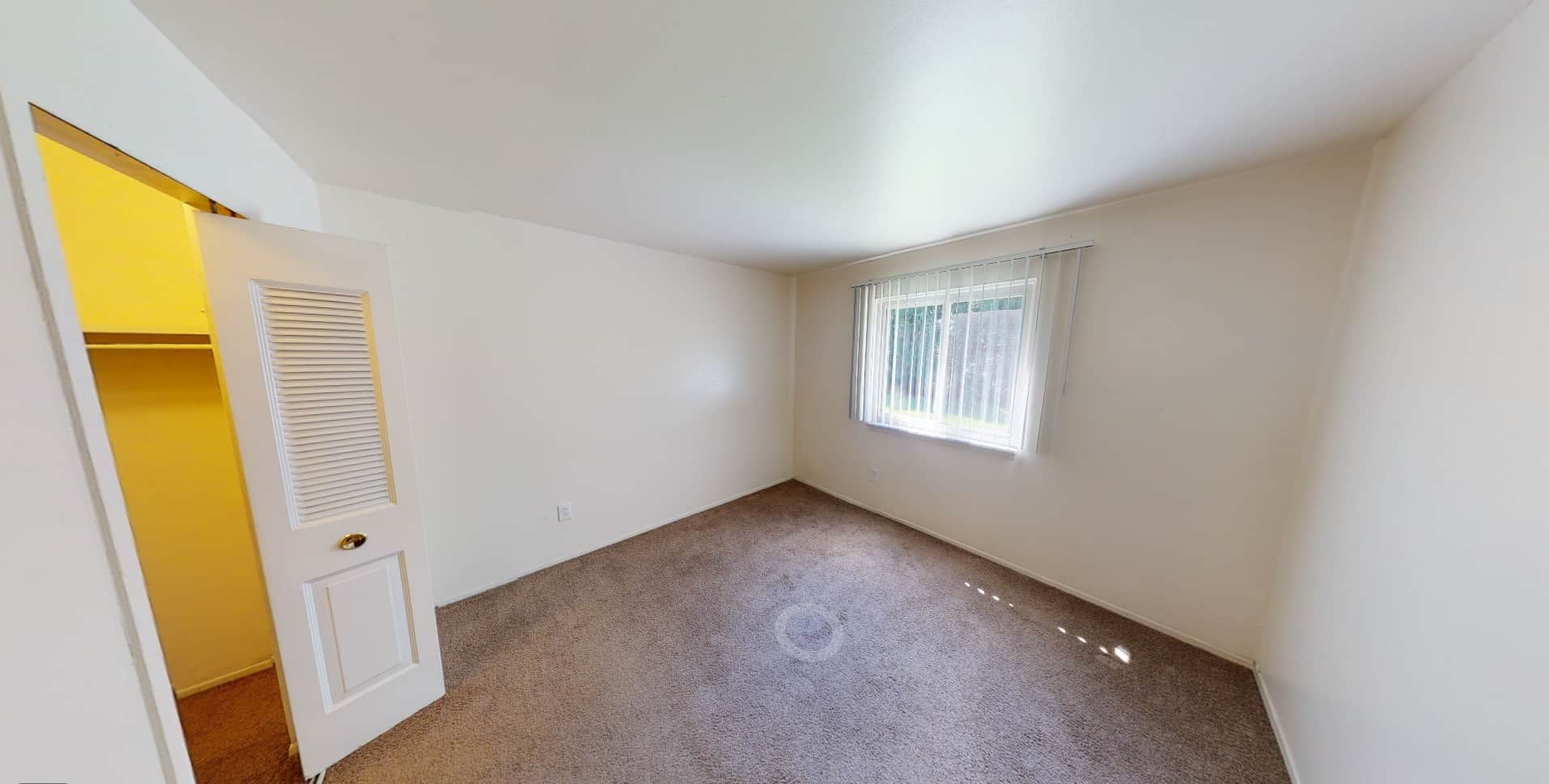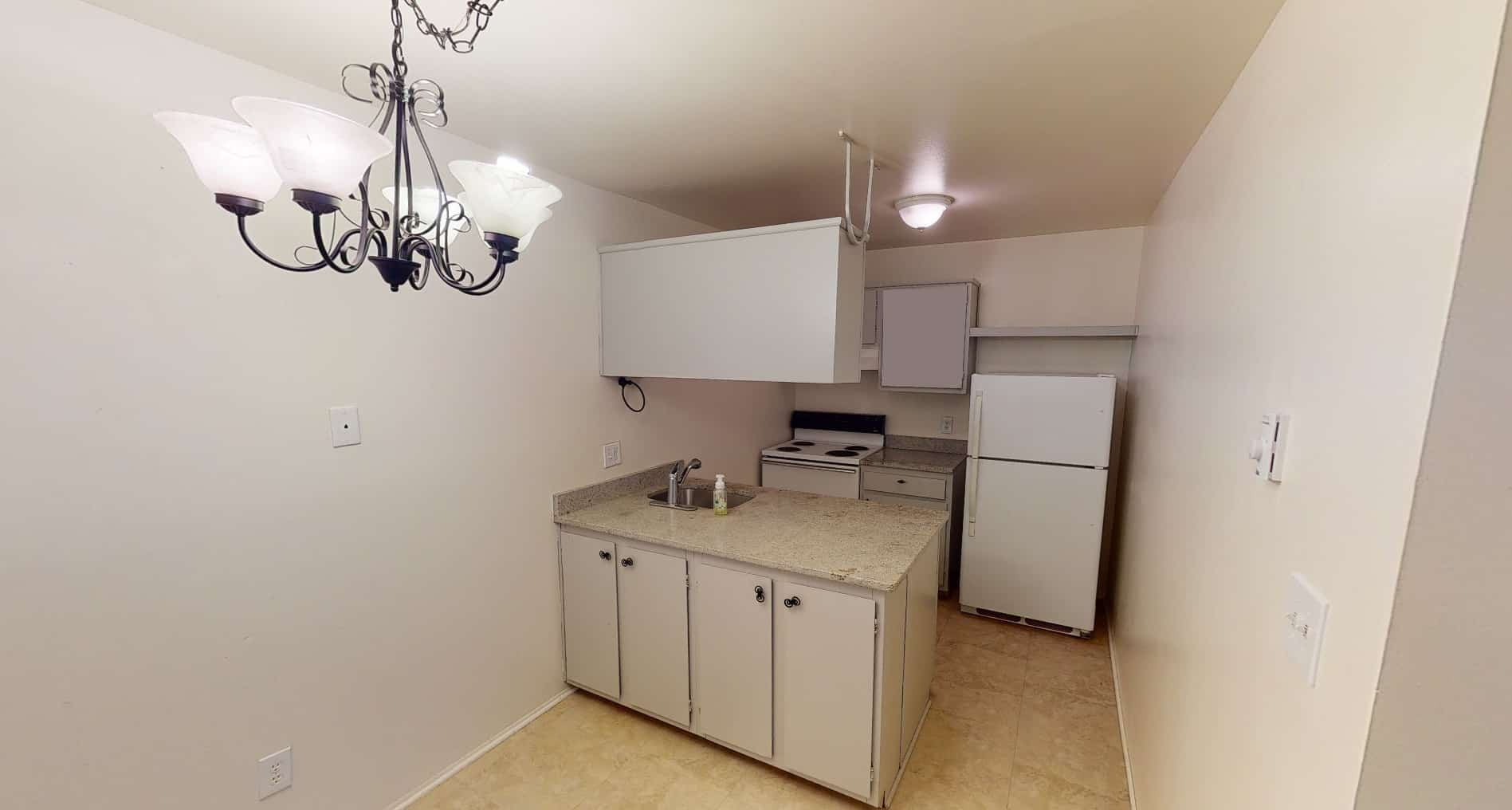February 27, 2023 at 12:34 pm
·
Justin Becker ·
Comments Off on What Not to Do When Renting an Apartment
Whether this is your first apartment or your first time renting after some years, there‘s a lot to consider before signing that lease agreement. The ups and downs of booking a rental property can be daunting. That’s especially true if there are many apartment communities to choose from.
What Renters Need to Know
For most apartments, the steps in the renting process are usually the same. You see a likely place, settle the details, and consider the current apartment hunt over. You know about the expectations: one month’s rent amount, first and last month’s rent as part of the move-in costs for apartments, and so on. Set a date for the move-in day, and you can finally sign on for your perfect apartment!
Unfortunately, it’s not that simple.
For college students and anyone with a choppy rental history, the chances of getting short-changed or scammed on their rental agreement are quite high. Even when the property owner or property managers are honest, it can be easy to make small mistakes that make you regret the decision later on.
Renters Can Make Mistakes
These mistakes can range from irritation at best to highly costly at the worst. Whether you’re dealing with a property manager directly or a faceless property management company, think long and hard while filling in the rental application. Even after you’ve started living in your first apartment, there are several mistakes that might get you evicted, blacklisted, or liable for several damages.
There’s a lot to know for first-time apartment renters. So, keep on reading for more details.
What Not to Do When Renting an Apartment
Do you think you’ve finally found that dream apartment home? Only time will tell if your life is going to be a dream or not, especially if it’s your first apartment.
Knowing what to expect can help you avoid these mistakes and blunders (both before paying rent and after).
Wondering what to avoid when looking for your first apartment? Here are some of the most common mistakes to keep in mind:
Skipping the In-Person Visit
Browse the online listings, but don’t sign anything before visiting the apartment building and looking at the unit in-person. Even with all the pictures from every angle, you don’t know what shortcomings are lurking in the corners.
No one wants to pay a few months’ rent upfront only to find that they’re stuck in a cramped apartment with not nearly as much storage space as the photos seemed to show. You also want to visit the apartment to make sure there are no funky smells around, that there aren’t any noisy neighbors, and that the pictures of the apartment you saw online aren’t from a decade ago.
If the first in-person visit was during the day, you can check back again during the night – and vice versa.
Not Knowing the Exact Required Upfront Costs
Make sure to ask the exact amount of the apartment security deposit before signing the lease. If you can’t manage that payment immediately, consider something else or get a cosigner to take on some of the financial obligation.
The same goes for all expected monthly expenses. The upfront cost of the security deposit is usually a major amount. Along with asking that exact number, you should also know what is deducted from your security deposit and why.
It is best not to break a lease early, but at times, it’s unavoidable. You should ensure that it’s possible to make an exit if things get too unbearable at any given place.
If, despite your best planning and budgeting, you find yourself in a financial pinch when it comes to your rental costs, there are options available to help you through tough times. For instance, exploring emergency loans for rent can be a viable solution to ensure you remain in good standing with your landlord and avoid the risk of eviction. These loans are designed to provide quick financial relief for those facing temporary hardships, enabling you to cover your rent during unforeseen circumstances. It’s essential to consider such financial aid as part of your overall emergency plan, ensuring you’re prepared for any situation that might affect your ability to pay rent on time.
Ignoring Seemingly “Minor” Damage
When you get to the apartment on the move-in day or even during a tour, photograph any damage that’s visible. Do not fall for any claims about the damage being minor or harmless.
A first-time renter may not know this, but any damage during your stay as a tenant can be attributed to you. Even if that paint was already cracking when you got there, many landlords might try to pin the cleaning or painting bill on you when the lease is up. Therefore, it’s always wise to act proactively so even the minor damage doesn’t come over you.
Not Asking About Utility Bills
You may think you’ve read all the details about the monthly rent, which covers most of your living costs for thirty days. However, you just might move-in and find that the month’s rent doesn’t include apartment utilities, i.e. the water, gas, garbage pickup, monthly maintenance, or electricity costs. That is when it makes sense to read the fine print and recheck the details about all bills apart from the monthly rent (learn how to read a lease here).
The best way to avoid unpleasant surprises while renting is to read the fine print very closely. Whether this is your first apartment or not, make sure to read the lease carefully and consider all the details before signing. This might help you avoid a hefty upfront cost, along with late fees and other unexpected fees.
Not Reading the Pet Policy and Visitor Restrictions Carefully
If you have pets, you naturally want them to live with you in the new apartment. Most apartment communities might advertise that they have a friendly apartment pet policy, but the fine print might say otherwise. While reading your lease agreement, make sure to go over the pet policy with a fine comb. They might have several breed or weight restrictions that disqualify your pet from staying in one of their apartments.
You may not expect your landlord or property management company to restrict your guests, but it does happen. Some lease agreements may stipulate that since visitors and guests don’t pay rent, they can’t stay longer than a couple of nights at the most.
Relying on the Landlord’s Insurance Policy
Assuming that the insurance policy of the landlord will cover your personal property is yet another mistake. The landlord might get compensation for the unit that was destroyed or damaged, but the loss of your valuable belongings is going to harm you alone.
You don’t have to suffer quite as much in the case of a fire, a burglary, or a natural disaster striking the apartment building. That is why you should have a plan for the safety of your belongings. One such way is to have a minimalistic approach when it comes to moving a lot of furniture to your new apartment.
Not Having Your Documents in Order
In order to book apartments for rent, you have to provide the landlord or property manager with a lot of documentation. This includes bank statements, pay stubs, references, and several other documents. All of these come together to provide proof that you can afford the first month’s rent and keep on paying after that. Plus, it assures the authorities that you are a fairly responsible, mature tenant who won’t cause any trouble.
Not Taking the Season into Account
That seemingly perfect apartment might be yours for a lot less than you’re signing for at the month. Before even embarking on your apartment hunt, you can conduct a search for the worst month to rent an apartment in your required area. If possible, shift your search time to the best times of the year to rent an apartment with the best perks possible.
You should also know when the lease starts and ends. There is a difference between a year-long lease and a 12-month long lease. Make sure you know what that is before committing to either one. Find out when apartment leases usually start. You can then compare those ranges with the offer you have.
Not Setting Rental Access Rules
If you don’t set boundaries now, it will be difficult to do so after the lease starts. Make sure that no one can enter the apartment without your express permission, not even the landlord or property owner.
Some landlords can be a bit intimidating and overbearing on such points. Stand your ground, however, and leave without signing if it looks like you won’t get the basic right of privacy.
Not Considering the Location
Make sure that the location of your potential new apartment is a convenient one. Your work commute, the kids’ schooling, and recreational opportunities should all be convenient instead of a regular hassle. Groceries, general shopping, and other necessities of a good life also depend on having a central location.
As you take an apartment tour, you should ask the landlord about the neighborhood, the nearby convenience stores, and the work commute details. This will give you a clear idea if the location aligns well with your preferences.
The Takeaway
When you’re on an apartment hunt, know that it’s not just about how much rent you’ll have to pay. You may not even get the perfect apartment the first time round, but it can be a fairly decent stepping stone until you get that ultimate dream apartment.
The tips above can help you save money, retain your security deposit, and benefit the most from your rental agreement. While you do need to know how much money you need to rent an apartment, it’s even more important to know the things to avoid. Make an apartment rental checklist of the points above and tick them off before submitting any rental application. With this precaution, even the first apartment can be an amazing experience.
Read more
February 10, 2023 at 10:50 am
·
Justin Becker ·
Comments Off on Do You Need a Credit Score to Rent an Apartment?
Finding a new place to rent can be an exciting experience, but it’s important to keep in mind that your credit score can play a significant role in the rental approval process. Besides receiving the security deposit and knowing your gross monthly income, landlords want to ensure that prospective tenants have the ability to pay rent and make utility payments in a timely manner. A good credit score can be seen as proof of this capability.
While a credit score may not always be a strict requirement, it can certainly increase your chances of securing the rental property you desire. With this in mind, you should be aware of how your credit score can impact the rental process. However, before moving ahead to rent an apartment, it’s wise to have adequate knowledge about credit scores, credit history, security deposit, and fair credit.
You should also know whether you really need a credit score to assure your landlord that there will be no missed payments.
Let’s dig deeper into everything in detail.
What Exactly is a Credit Score?
A credit score is a numerical value (usually ranging from 300 to 850) that assesses your credit worthiness. When considering your application for a new account, creditors and lenders take into account your credit score as one of the factors in their decision-making process.
In assessing rental applications, landlords might be interested in knowing about the available credit, as well as credit card payments. Having knowledge about their tenants’ good credit score helps them shortlist the most reliable applicants who can pay rent without any delay.
Do You Need a Credit Score to Rent an Apartment?
There is no specific minimum credit score required to rent an apartment. However, some landlords prefer a higher level of credibility before accepting rental applications. They might want to know your credit score beforehand so they can make a decision accordingly. That is why they’d prefer to get into a credit check and evaluate your credit scores before moving forward.
It is wise to collect your credit reports from credit bureaus so you can show your credit history to potential landlords. That way, there are higher chances that your rental application will be accepted.
How Credit Score Affects Renting an Apartment
As financial circumstances change, the credit scores also change. So, understanding the impact of various factors affecting the credit score will help you work towards improving it over time:
- Payment history is the most crucial element in calculating credit scores. A single missed payment can significantly lower the score. Landlords want to ensure prompt monthly rent payments when considering you.
- High credit utilization may be a warning sign to creditors that you have excessive reliance on credit. It gives an insight into how much of the available credit is being utilized, indicating the dependence on non-cash sources.
- Length of credit history considers the age of the credit accounts. A longer credit history tends to result in higher credit scores.
Excessive Credit Applications in a Short Period Can Be Troublesome
Each time a credit card issuer assesses your credit report for a loan decision, a hard inquiry is recorded in your credit history. These inquiries remain in your file for two years and can temporarily lower your score. Lenders assess the number of hard inquiries to determine how much new credit you are seeking.
A high number of inquiries in a short time frame may indicate a pressing financial situation or being denied for a secured credit card.
How to Evaluate Your Credit Before Renting a Home
When searching for a rental property, it’s essential to understand the role that your credit score can play in the approval process. The specific credit score required for approval can vary depending on the landlord, property, and location. However, having a clear understanding of your credit score beforehand can give you a better idea of the properties you’ll most likely qualify for.
Before you begin your rental search, you can obtain a free copy of your credit report and review it for accuracy.
What the FICO says
The following is a general guide of credit scores according to the popular FICO Score model:
● Exceptional: 800 to 850
● Very Good: 740 to 799
● Good: 670 to 739
● Fair: 580 to 669
● Very Poor: 300 to 579
If your credit score falls within the “Good” to “Exceptional” range, you can feel confident in your rental search. However, if your score is “Fair” or “Very Poor,” it doesn’t necessarily mean that you won’t be able to find a rental property. You may just have to consider alternative approaches to increase your chances of success.
What if You Don’t Have a Good Credit Score?
It is wise to always avoid bad credit by maintaining your credit history so that landlords can be sure that you can make rental and utility payments on time. With that said, you don’t have to be pessimistic while submitting your rental application if your family member or you have a low credit score. You can explore several options for obtaining the landlord’s approval despite a lack of credit history or unfavorable credit score.
Besides finding out what you need to rent an apartment, the following tips will help you find the right apartments for rent and make monthly payment even with bad credit:
Demonstrate Financial Stability Through Income or Savings
If you lack credit history, you may still be able to rent an apartment by showing stability in your income that’s sufficient to cover the rent. Rent should not exceed one-third of your take-home pay. Alternatively, having a substantial savings balance in your bank account can help persuade most landlords about your stable income.
You should also know how much money is required to rent an apartment. The amount required may vary, but should be enough to cover multiple months of on-time payments.
Seek a Private Owner (but be cautious of fraud)
Renting an apartment from an individual property owner or family-owned property management usually involves a credit check; but some individual landlords might rent without going through the credit checks. That is mainly possible if you can demonstrate financial stability by showing the right financial documents. You can also offer a month’s rent upfront to build trust.
Though this seems to be a smooth process, you should be wary of affordable rental listings that appear too good to be true. Therefore, it makes sense to stay away from scams. Consumer reporting agencies warn about the red flags for rental scams.
How to Stay Away from Scams
It is important to keep in mind the following points while improving your bad credit:
- Never make advance payment for security deposit without touring the apartment.
- The owner might be out of the country with a representative handling the rental. Be wary of sending money overseas and make sure to inspect the apartment before committing.
- The owner might request a wire transfer (which is equivalent to giving cash and can’t be recovered). In this case, it’s better to select another payment method that’s more secure and reliable.
Win the Landlords’ Trust Through Reference Letters and a Larger Security Deposit
It is believed that individuals who are reliable in their professional and educational settings are more likely to be financially responsible. Reference letters are a useful tool to show your commitment to make on-time rent payments if you have a rental history.
You can demonstrate your responsible nature to potential landlords by presenting reference letters from previous employers, teachers, or professors.
Also, landlords may consider tenants with low credit scores if they provide a larger security deposit. By paying several months of rent in advance, the landlord’s worries about your bad credit can be relieved.
How to Improve Your Credit Score for the Long Run
Enhancing your credit score is achievable once you comprehend the reasons for its low rating. While it may require time and effort, establishing responsible habits now can lead to a better score in the future. This can also help you in getting your rental applications accepted when you plan to rent another apartment.
An initial step to establish credit history that’s also worthwhile is to obtain a free copy of your credit report and score so that you have a clear understanding of your credit history and credit builder loan. After that, you can concentrate on the factors that are lowering your score and take actions to address them.
Raising Your Credit Score
Here are some frequently recommended steps to raise your credit score:
- Making timely payments on all bills as payment history is the most crucial factor in determining your credit score
- Decreasing credit card balances to lower your credit utilization ratio and maintain credit limit
- Catching up on any past-due payments as late payments can have a significant impact on your score
- Challenging inaccurate information on your credit report to correct mistakes that may be lowering your score
- Minimizing new credit applications to reduce the number of hard inquiries in your credit file
The Takeaway
There isn’t a specific credit score that guarantees approval of the credit check. However, a good credit history generally indicates a record of responsible credit management, which can give potential landlords more confidence when evaluating a new rental application.
Ensure that you make timely rent payments and follow the conditions of your rental agreement. Demonstrating responsible tenancy will increase the chances of getting your rental application approved.
Read more
February 3, 2023 at 10:41 am
·
Justin Becker ·
Comments Off on What Do You Need to Rent an Apartment?
If you’re a first-time renter or renting an apartment in a new city, you may not be completely familiar with the apartment search process. Of course, general knowledge will help you out – most potential renters know that they need to have a certain gross income, at least one month’s rent, security deposit on hand, and their credit checks in order.
However, there’s a lot more to know about how rental applications work. This is especially true if you want that perfect apartment in a particular building. The most reputable apartment communities and direct owners of rental property usually have a stringent rental application process in place. They have the authority to eliminate anyone with bad credit, even if it’s related to student loan debt.
Overall, there is a lot to get through before you even submit that rental application. If you would like to end that grueling apartment hunt and settle down in a dream apartment, it’s worth knowing more.
What Do You Need to Rent an Apartment?
What if you find your dream apartment, but don’t have the required documentation in order? Remember, any decent property management company or individual property manager will require proof of monthly income, identity, bank statements, credit and background checks, and so much more besides.
You may not have found your dream apartment yet, but having all the documents in hand can help you qualify and snap it up when the time comes.
It is a Competitive Market
Many apartment complexes will jump at the chance to fill any vacancy. So, giving them all the required proof can get you your dream apartment home in no time!
Ready to start getting everything in order? Let’s first have a look at what you need to rent an apartment today so you can immediately sign a rental agreement.
1. The Rent Itself
When you seek to rent an apartment, the first question should be: how much rent can I afford? Once you have a set range in mind, you can move on to the question of how much money you have to pay to rent an apartment?
Can You Afford the Rent of Your Dream Apartment?
Whether you have your heart set on the upscale type of apartment complexes or want a friendly, safe apartment community, consider the monthly rent before anything else. This makes the most sense as you don’t want to sign a lease agreement you can’t afford.
How to Figure Out Your Affordable Rent Range
Before you pause your apartment hunt to sign any contracts, figure out your affordable rent range. The 30% rule is usually the best measurement as it gives you a lot of wiggle room.
This rule means that a tenant should not be spending over 30% of their take-home income on rental payments each month.
Other Expenses
The expenses of renting an apartment aren’t limited to rental payments only. Besides the apartment move-in fees, here’s a glance at the various expected costs to budget for:
- Security Deposit: This is usually refunded if you leave the apartment in decent condition
- First and Last Month’s Rent: This could be for more or fewer months according to the policy in place
- Application Fee: This is used for running credit checks and generally processing the application
The Payment Options
Once you’ve noted all the expected fees, you might want to find out how to pay rent for an apartment. There could be several payment options, so you can pick whatever is most suitable for your situation.
2. Your Contact Information
When you apply for an apartment, the property manager will need updated contact information to get in touch about any updates. Make sure you give them your current address, phone number, email address, and an alternative number as well. You should also double-check for typos.
3. Proof of Identity
You will need to confirm your identity before renting an apartment. The most common way to do that is to submit a copy of your photo ID. Depending from one landlord to the other, a driver’s license usually suffices in most cases.
Parking Spot
If the place you’re applying for has a parking spot as well, you’ll need to show a relevant driver’s license. The amendment may also require proof of your vehicle registration, its make, model, year, insurance information (if any), etc.
Social Security Number
Before you rent any apartment, the property manager in question will run a background check and credit check on you. For this purpose, they’ll probably ask for your social security number. However, it’s also wise to know that there should not be any request for providing your social security card, not even a copy of it. The number alone is sufficient for such purposes, at least for now.
Know Your Credit Score
Before you fill out any apartment applications, you might want to run a credit check on yourself. Due to the increasing occurrence of identity theft and hacking, many people may end up with a lower credit score than they think they have. At other times, certain actions of yours might have lowered your score without you even realizing it.
Analyze if You Need a Guarantor or a Co-Signer
Once you understand where your credit score lies, it will be easier to decide whether to look for a guarantor or co-signer. If you want to stay safe throughout the rental application process, you can find out if your parents can rent an apartment for you.
4. Resume or Some Form of Employment History
Property managers and landlords usually ask for recent proof of stable employment, and, hence, a stable income. Many people might have enough saved up for a few months of rent, the application fee, and the security deposit, but a property manager will probably ask for evidence, including:
- Recent pay stubs
- Bank statements (for at least the past two months)
- Tax returns
- References from previous and current employers
What a Property Manager Expects
Ideally, a property manager will like to see that you’ve been at your current place of employment for about six months or more. Therefore, you can provide details of your employment history when filling out the rental application form.
In Case of a New Job or Self-Employment
If you’re fairly new to your current job or are self-employed, it’s time to get letters of recommendation and references from people that the property manager can trust. These may include previous employers, previous landlords, etc. We will discuss references in detail further on.
Make Sure You Can Pay Your Way
If you’re self-employed, it can be hard to determine a stable level of income. Before signing any lease agreement, you’ll have to present a thorough credit check to your potential landlords in such cases.
For your own sake, make sure you know how much income is required to rent an apartment in your apartment complex of choice.
5. References (As Many As Possible)
A rental application in highly desirable apartment complexes requires something unique if you want to get noticed. That is why it’s a good idea to mention the names and contact numbers (with permission) of your previous landlords, property managers, or the property management company.
How References Will Help You
Showing relevant references can help landlords assess your credibility while giving them the following information:
- You paid your month’s rent on time
- You got along well with other tenants in the same apartment complex
- You didn’t break any part of the previous rental agreement
- You were able to pay the security deposit as well as the monthly rent
- You and your family were able to keep your previous apartment in decent order
Sources for References
With the information from various references, the property managers at your desired apartment community might place your rental application on a priority level.
Apart from your rental history, other references will help to make that rental application stand out from the rest:
- Current or previous employers
- Current or previous managers or co-workers
- Mentors
- Teachers or professors
- Coaches
6. Information on Any Pets
If you have a pet and the potential apartment complex allows them, you’ll get the landlord’s information about their rules of pet ownership. You will also have to be upfront about the kind of pet you have; along with their size, their weight, breed, and other factors. Proof of vaccination is also typically necessary. Finally, keep the following pet-related expenses in mind:
- A pet rental fee
- Pet security deposit (paid upfront)
The Takeaway
When you plan to rent an apartment, do keep all the above factors in mind. The more you prepare to be ready for an apartment, the more likely you are to acquire the next likely unit! With the housing market being so competitive these days, potential tenants and apartment hunters need to do all they can to secure a place. This also requires knowing how long it will take to move to a new apartment.
You don’t have to get overwhelmed, though. Take it one step at a time and start with whatever is easiest. Begin today. That way, you can have your documentation ready in a matter of days.
Read more
January 17, 2023 at 10:41 am
·
Justin Becker ·
Comments Off on How Much Money Do I Need to Rent an Apartment?
Renting your first apartment can be an exhilarating experience; but it also comes with a range of all the costs, including the upfront costs. While some expenses, such as monthly rent and security deposit, are obvious and predictable, others, like move-in costs or the need for additional furniture, may come as a surprise. It is important to be aware of all the costs before renting your first apartment so you can budget accordingly.
The various expenses associated with apartments for rent can quickly add up, far exceeding just the cost of rent. To ensure a smooth move–in process and cover all the expenses when moving into an apartment (including standard living expenses), you should save enough money so you will be paying rent without any difficulty.
The Upfront Costs
To ensure you are able to pay rent within the right time frame (as specified by the property managers or landlord), it is essential to understand the overall apartment bills you need to budget and save for before renting an apartment. So, let’s explore more about these costs before knowing how much rent you will be paying to the landlord once you move into your new apartment.
Application Fees
When applying to rent an apartment, most landlords will charge an application fee. This fee is typically between $25 and $50, but it can reach as much as $100. Plus, you might be required to pay for a background check screening. This usually falls within a similar price range.
As you may submit multiple applications while looking for your first apartment, it is advisable to set aside $100 to $200 to cover these apartment fees. Although these fees are typically non-refundable, in some cases, the application fee can be applied towards your security deposit if your application is accepted.
Security Deposit and the Monthly Rent
The purpose of collecting a security deposit is to deduct a specific amount of money in case of unpaid rent or damages done to the property. This deposit is usually the equivalent of one month’s rent, but it can be lower if you have a good credit score or a co-signer. Besides, if you plan to move-in with a pet, some landlords may require an additional pet deposit.
When renting an apartment, you will also be responsible for paying the first month’s rent and the last month’s rent. The first month’s rent is due upon move-in and is typically required to be paid in full before you can take possession of the apartment.
The last month’s rent is usually due at the end of the lease term, however sometimes it is required to be paid in full prior to moving in. This way, the landlord can use that last month’s rent as a cushion to cover any damages or unpaid bills. So, it is essential to budget for both the first and last month’s rent when planning to move into an apartment.
Moving Costs and Other Costs
Besides knowing how long it takes to move apartments, it is worth knowing about the transportation costs associated with the physical act of moving your belongings. These costs are also a part of apartment costs and might include hiring movers, renting a truck, or buying packing materials.
There are also various miscellaneous expenses that may arise during the rental process. These expenses include things like cleaning supplies, food, and basic household items. If you plan to have cable or internet services, there might be installation fees, too.
It is also essential to budget for regular monthly expenses, including car payments. These miscellaneous costs can add up quickly, so it is important to account for them in your budget and plan accordingly.
How Much Money Do I Need to Rent an Apartment?
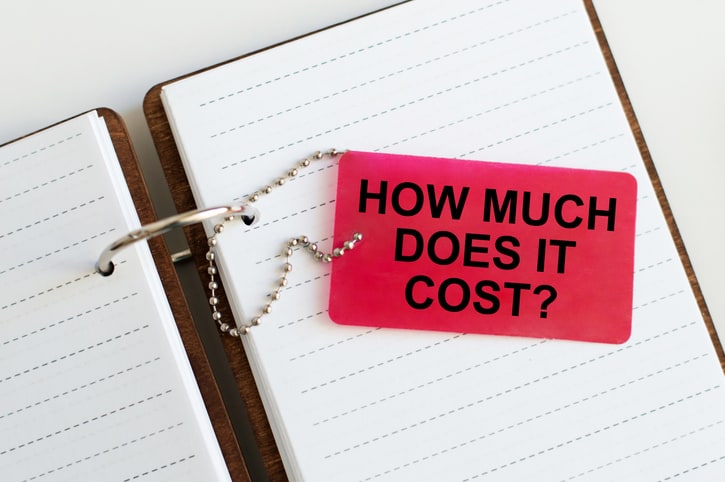
How much money is needed to rent an apartment is a critical question. To cover all the costs discussed above, it is advisable to save an amount equal to at least 3-4 months’ rent. This should cover the first month’s rent, the security deposit, and the last month’s rent. However, the exact amount of money you should save will depend on the apartment prices, which might vary greatly.
Follow the 30% Rule
The 30% rule is a guideline commonly used to determine how much to budget for apartment rent. According to the rule, you should not spend more than 30% of your gross income on housing expenses, including rent, utilities, and renter’s insurance.
To calculate how much you can afford for rent using the 30% rule, follow these steps:
1. Determine your gross income: This is the total amount of money you earn before taxes and other deductions
2. Multiply your gross income by 0.3: This will give you an estimate of the maximum amount you should spend on housing expenses each month
3. Subtract any other housing-related expenses: If you have any other housing-related expenses, such as a mortgage, subtract that amount from the total you calculated in Step 2
The Next Step
Compare the total amount you calculated in Step 3 to the cost of rent for the apartment you are considering
If the rent is more than this amount, you will need to consider a less expensive apartment or look for ways to increase your income.
The 30% rule is a guideline. However, the percentage of your income that you can afford to spend on rent can also vary depending on your annual income, pay stubs, household income, and the size of your household. For instance, a single person earning $50,000 per year with no dependents might be able to allocate 50% of their income towards rent and still have enough money left over for other essential expenses.
In another case, a one-parent household with two children earning the same amount of money and spending 50% of their income on rent might not have enough money left over for other necessary expenses. That is why you should assess your specific financial situation when determining how much you can afford to spend on rent.
The 50/30/20 Rule
The 50/30/20 rule is another rent-to-income ratio guideline that can be used to determine how much to budget for rent. This rule suggests that 50% of your income should be allocated towards necessities, 30% towards discretionary spending, and the remaining 20% should be saved or used to pay off debt.
To calculate how much to budget for rent using the 50/30/20 rule, follow these steps:
1. Determine your gross income: This is the total amount of money you earn before taxes and other deductions
2. Multiply your gross income by 0.5: This represents the maximum amount you should spend on necessities, including rent, utilities, food, and transportation
3. Divide the total amount from Step 2 by the number of months in your lease: This will give you an estimate of the maximum amount you should spend on rent each month
The Next Step
Compare the total amount you calculated in Step 3 to the cost of rent for the apartment you are considering. If the rent is more than this amount, you may need to consider a less expensive apartment or look for ways to increase your income. You can also save more so that you can afford your preferred apartment.
Again, we suggest that the 50/30/20 rule is just a guideline. You should assess your finances, other living expenses, and monthly income to know how much you need to rent an apartment so you can choose an apartment complex accordingly.
How to Find Affordable Apartments
You will have to budget less so you can easily find an apartment with a reasonable monthly rent. You can use various online apartment rental sites to search for affordable apartments in your desired area. You can filter your search by price, size, and other factors to find the best affordable apartments that fit within your budget. There might be many apartment complexes that are the best bet for you.
Besides conducting research online, these tips will help find affordable rent apartments:
Negotiate Well or Consider a Smaller Unit
Do not be afraid to negotiate with the landlord on rent or other lease terms. For example, offering to sign a longer lease or pay rent in advance could result in a lower monthly rent. Perhaps, you might not get a good negotiation if you choose the worst month to rent an apartment. Therefore, it makes sense to take advice from a property manager about the average rent before hunting for an affordable apartment.
Downsizing to a smaller apartment can also lower your monthly rent. For example, you can opt for a one bedroom apartment instead of a two bedroom apartment in an apartment complex.
Many apartment complexes offer move-in specials or discounts for signing a lease early. Be sure to ask about any current promotions or specials when inquiring about an apartment. This way, you can even get a discount for a two bedroom apartment.
The Takeaway
Using the 30% Rule and the 50-30-20 Rule can give you an idea of how much you need to rent an apartment.
However, these are simply guidelines. You should also consider your specific circumstances before moving further.
The key is to find affordable apartments so you can easily pay monthly rent, along with affording other utilities.
So, getting your dream apartment home is still possible with a low budget. Calculate your income and expenses today so you can figure out how much you need to rent an apartment. Once done, it is time to move to your new apartment!
Read more
January 9, 2023 at 10:45 am
·
Justin Becker ·
Comments Off on What is the Worst Month to Rent an Apartment?
Renting an apartment requires you to consider a lot of factors. One of the first things to remember is that the rental market doesn’t always stay the same.
Whether you are looking for two bedroom apartments, studio apartments, or a decent one bedroom apartment, a little market analysis is always a good idea. Make sure to avoid signing leases until you have done your homework about the best and worst months to rent an apartment.
Worst Month to Rent an Apartment
Are you ready to start searching for your new apartment? If you plan on moving within the U.S., you should check out similar seasonal trends in order to get a better deal.
It Depends On Your Preferences
Perhaps you have been wondering about the best and worst months for renting an apartment. The answer really depends on what you are looking for.
The Rent
Most apartment hunters’ first and foremost consideration is the rent expectation. That alone would make August, June, and July the worst months to rent an apartment.
The Time Factor and Rent Rates
Most kids enjoy their holidays during the summer months (usually June, July, and August). College students are also at liberty during this time.
Extra Sunlight
Before making any decisions, consider how long it takes to move apartments. No matter how little you have to move, it is still better to do these things in the daytime.
A Lot of Competition
The insights of people moving during the warmer months will tell you just how much demand there is for housing at this time.
High Demand
With many people touring apartments and snapping up whatever they can find, homeowners and agents will go beyond the original asking price. They might get offers to match or even exceed their demands.
Is it a Priority?
If your priority is not a low rental rate, but ease of moving, July won’t be such a bad time to start an apartment search.
Vacant Units
With the moving rates being so high, there should be quite a few units vacant at this point.
It Might Also Be Costly
Do remember that renting in July or the summer months, in general, can cost you over $100 per month more than a winter month rental.
Low Rent in Winters
The winter months, however, will give you lower rental rates since the landlords are trying to fill up their leftover spaces.
Less Choice
While you may be getting a better deal, you also have less choice during these months.
Start Looking Around
The factors that determine the worst months for renting an apartment will also point you towards the best month to look for an apartment.
How to Make an Apartment Search Easier During Summer
There are many reasons why July to September is the only period when you could go hunting for an apartment. There are similar seasonal trends in the rental market throughout most areas of the U.S.
Why Go for the Summer Months?
Here is a glance at a few situations that might prompt you to go for the summer months.
It Depends On Your Current Situation
Overall, your apartment hunting period might have to be during this time due to the following:
Studying in College
You are a college student who needs off-campus housing for the coming fall semester.
You Want to Begin Your Career
You have just graduated college and now need a place to stay while working at your job or finding one to begin with.
You Have School Going Kids
You do not want your kids to transfer schools mid-session due to your moving time.
It Can Be Challenging
So, what do you do when faced with the heavy competition for renting apartments during summer? The rush alone could make June and July the worst months for moving.
How to Make the Transition Easier
There are some tips that might make some steps easier:
1. Prepare Yourself
If you see a decent one bedroom apartment or any other likely apartment style properties, it is wise to lock it down right away.
Finalize Your Decision Immediately
During the summer, you can’t expect a rental to be available even the next day. Therefore, when you go for a tour, you should agree on the final rental price immediately.
Be Proactive
Check out the resale market and try to find out the rates for similar properties rented in the same area.
Take Advantage of the Early Summer
If it is still early summer, you can have a lot of choices. So, do your research. This practice just might help you match your potential landlord’s negotiation leverage.
2. Get Your Documentation Together
Renting an apartment requires you to present certain documentation to the landlord. This includes your proof of income, proof of identity, credit history, recent tax returns, and any reference contacts.
Organize Beforehand
Get all these documents ready and in a file well ahead of time. This might help you secure even those elusive two bedroom apartments in the early summer!
3. Secure the Required Money
When conducting a market analysis, you should consider several financial aspects of renting an apartment. This means considering the security deposit and other demands, besides the original asking price.
Learn the Right Way to Search for Apartments
Once you know how to shop for apartments, it might become easier to handle a landlord’s negotiation leverage, even during the worst months for renting.
Prepare Beforehand
One of the first steps here is to have the security deposit ready before even starting an apartment search.
Why it’s Important
During the summer, you probably won’t get a few weeks to gather the deposit, and then come back to rent a decent apartment.
4. Planning the Apartment Search
If you intentionally plan out your apartment hunting, you might be able to reduce how much leverage landlords have over certain apartments.
How to Improve Your Overall Experience
While it might be a busy time of the year for renting, here is what any potential tenant can do to improve their experience:
Exclude Weekends from the Schedule
Do not book tours on the weekend; this is when almost everyone is able to go out for an apartment hunt – remember, regular employees are also off during that time
Act Smartly
Try to utilize your lunch break, take a short leave in the middle of the week, or do something else to meet landlords when there are off-peak hours
Analyze Your Preferences
Know what you want, but don’t over-complicate it; have a few deal breakers in place and know what to insist upon
Do Not Rush (if possible)
Rushing unnecessarily is not the best way forward; you do not want to end up paying a premium price for a mediocre apartment
Seek Help
Consider the factor of hiring a moving company as well; these will be in high demand when it is warmer and the prices then will also increase accordingly
When is it Wise to Wait?
Overall, if you are planning to find a new apartment during early summer, you may want to consider waiting a little.
It Can Be Tricky
June is usually an expensive time to begin a new rental lease, especially when it comes to the largest housing markets in the country.
Some Helpful Tips
Consider the following observations before putting off or speeding up your search:
Know About the Peak Pricing
Certain regions might have peak pricing for rentals at different points during the year
Wait for Winter if You Want Discounts
If you want to save money, then you should wait for winter (this is when potential landlords might offer discounts due to less traffic on their listings)
The Intensity of the Weather Matters
The lower rent rates will depend upon whether the winter is harsh or not; the number and quality of spaces left is also an important matter to account for
Consider Multi-Year Leases
Consider making a concession to get a better deal — you can agree to multi-year leases from the very beginning (if you plan to stay in the same region for longer)
How Multi-Year Leases Can Be Beneficial for You
With leases for a multiple number of years (with the signature), you will not be subject to major rent hikes in the future – learn when your landlord can increase rent here
The Takeaway
Overall, we might say that there are no categorical best or worst months to find apartments for rent. Instead of thinking in terms of rent alone, consider the advantages you get in choosing summer or winter months. The weather during these months do determine how much leverage landlords get, but it can occasionally work in your favor.
Make sure to know just what you want from your new apartment or apartment-style properties. Along with the final rental price, you have to consider the start of the school year, choices in the properties rented, the resale market, moving flexibility, and so on. Do a thorough market analysis of what these data points provide and avoid signing leases unless you are absolutely sure of getting a reasonable deal.
Is this your first time looking for a space to rent? Be sure to look up what to know for first-time apartment renters!
Read more
December 30, 2022 at 9:23 am
·
Justin Becker ·
Comments Off on Come Find Your Dream Apartment Homes
Planning to settle in Michigan? Already there and want to upgrade to your dream home as soon as possible?
In the Great Lakes State, there are plenty of apartment homes where you can settle down and start working on your life goals. If you are looking for luxury apartments within reasonable prices, though, look no further than Cass Lake Front Apartments!
Dream Apartment Homes
When you go to Cass Lake Front Apartments, you are in for the time of your life! Even when you drive up to the place, the modern garden-inspired architecture will show you how much pride we take in our daily operations.
Ready to start your ideal lifestyle in Michigan? Have a look at all we have to offer right now.
Where are Cass Lake Front Apartments?
We are located at 1754, Cass Lake Front Road, Keego Harbor, MI 48320. So, your dream apartments are ideally located in between two gorgeous lakes — Cass Lake and Sylvan Lake. It is an excellent place for strolling along, running errands, and letting children play in natural surroundings.
There are many reasons why Cass Lake Front Apartments is in the top location for most of its residents. Here is a quick glance at just a few of the perks on our property:
● Easy access to highways and other forms of transport
● Easy access to shopping centers
● Further shopping opportunities available in nearby big cities (including Detroit)
● 1 and 2-bedroom apartments are close to the city center and much more
● Planned outdoor activities, as well as open space for a healthy lifestyle
How Did We Start?
Keego Harbor initially began as a resort for tourists and other visitors. With time and progress, it is now a quiet and charming place, perfect for settling down and raising a family.
At Cass Lake Front Apartments, we are aware that a family or couple needs decent sized bedroom apartments for their living needs. The same goes for retired individuals or young professionals.
To this end, we aim to provide a comfortable, safe, and welcoming environment for all kinds of residents. Take a detailed tour, and then check out how long it takes to move apartments. You would want to upgrade right away!
What Do You Get in Our Dream Apartments?
Our dream apartments have a lot to offer, with two floor plan options for different requirements. These are as follows:
- Our 1-bedroom apartments for rent floor plan: The size of our one bedroom apartment units is around 750 square feet, and their rent rates start at $975 per month.
- Our 2-bedroom apartments for rent floor plan: If you are in search of two bedroom dream apartments, Cass Lake Front Apartments has you covered. This slightly larger unit covers around 950 square feet, with rent starting at $1,100 a month.
No matter what floor plan you choose, you will have an impressive new living space in Keego Harbor, Michigan.
What is Inside the Units?
Our rent rates are below the local average, so you can expect to get the best experience at the best prices. All of our dream apartments have been painstakingly designed for convenient living. This way, we are also ensuring that our apartments are built keeping in mind the latest trends.
Whether it is the one bedroom or two bedroom apartments for rent, each of our floor plans includes the following:
● A spacious living room with air conditioning
● An oversized door leading to the balcony or patio
● A beautifully appointed kitchen, complete with gorgeous custom cabinetry, granite countertops, and brand-name stainless steel appliances
● A convenient dining space, perfect for quality family time or having company over
● A spa-like bathroom with brass fixtures
● A large master bedroom that can fit a queen or king sized bed
● Plush carpeting or hardwood flooring
● Large walk-in closets
Differences Between our Floor Plans
Our two bedroom unit offers a few additions to the standard one bedroom option.
The biggest difference, of course, is the second bedroom. This is necessary if you need a lot of space as a couple or single individual, or if you have a small family to consider. A second bedroom also works great as a home office, home gym, and several other uses.
The kitchen is larger in the two bedroom unit as well, with the same quality stainless steel appliances. You get more window space and an extra closet for all your stuff.
Some things remain the same, though. The energy-efficient lighting is one of them, and you get the same shower and tub combination in the bathroom. The one bedroom living space features air conditioning as well. There is no compromise even in the smallest apartment at Cass Front Lake Apartments.
We know it can be hard to fit all your belongings in a limited space. This is why we have made this guide to help you maximize space in a small apartment.
What Makes Our 1 and 2-Bedroom Apartments Stand Out?
When you choose Cass Front Lake Apartments, you get the best designer touches in town! Just a few of these include:
- A neutral color palette so that you can apply your individual tastes and preferences
- Hardwood flooring that is suitable for both children and pets
- Carpeted bedrooms for maximum comfort
- Gourmet kitchen in some units
- Garbage disposal
- An efficient system for both air conditioning and heating
- All units ready for cable and internet hookups
- Easy bill payments with the Cass Lake Front online resident services portal
- 24-hour apartment maintenance services
Needless to say, Cass Front Lake Apartments is dedicated to your comfort and convenience. Our dream apartments aren’t just places to live. These are proper homes where you can live to the fullest.
What is There To Do in Keego Harbor?
Once you have toured our dream apartments and selected your living space, what kind of a life can you expect? Fortunately, Keego Harbor is one of the best places to live for many people in Michigan. Here are just a few reasons why you will be living your best life in our apartments:
- Quality Educational Opportunities: The highly-ranked Keego Harbor schools ensure that your kids get stellar educations. Some of these schools are nearby Cass Front Lake Apartments, so the school experience should be hassle-free.
- Lower Crime Rates: At Cass Front Lake Apartments, we are proud to offer our residents a safe and secure place to live. There are precautions in place, but the area in general is a quiet and safe one where families can flourish.
- Best for Nature Lovers: Along with the nearby lakes, Cass Lake Front Apartments are also near several natural trails, parks and rec, and other recreation areas. These are perfect for family picnics, exercises, walks, or a relaxing time surrounded by nature.
Some More Activities To Do in Keego Harbor
According to online sources, the walk score for Cass Front Lake Apartments is around 69 out of 100 for now. The bike score stands a bit lower at 59.
The walk score here means that this area is quite safe and suitable for walking. Some errands are easily accomplished on foot, while you may need a bike or car for others.
The bike score means that there is some bike infrastructure. However, you can’t ride your bike everywhere.
Along with the amazing amenities on our property, you can also expect several services at a convenient distance.
When you are in need of some pampering, for instance, check out the best nail salons Keego Harbor, Michigan offers.
More in the mood for a delicious meal that you don’t have to cook? Take a look at the top Italian restaurants in Keego Harbor, MI or some of the other excellent Keego Harbor restaurants.
Start Your Ideal Lifestyle Today!
You may start by asking the question: “Should I Move to Michigan?” Since there is so much to benefit from this beautiful state, we have no doubt that you will make the decision to move very soon.
Before you do, make sure to tour our dream apartments and book one for your very own. With our world class community perks and friendly atmosphere, you can be sure of achieving your better living goals.
Ready to see our one and/or two bedroom apartments? Contact us and book an appointment before our dream apartments get snapped up.
Read more
